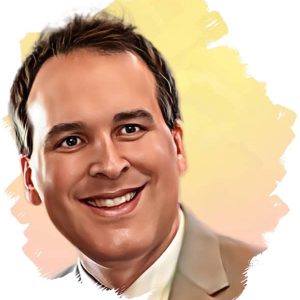Injuries are never easy on a team, regardless of the fallen player’s talent level or role with the club.
Adam Jones’ hamstring injury comes at a time when he is third in the American League in hitting (.370) and leads the Orioles in hitting, home runs (8) and on-base percentage (.426). While Jones’ absence—regardless of the length—certainly hurts the team, the Orioles are in a position in which they have not found themselves very often in the past 20 years.
However, an injury leads to an opportunity, and the Orioles can actually look to the minor leagues for a legitimate option to replace him in the lineup.
Enter Nolan Reimold. He’s another possible piece of the future to watch despite the forgettable start to the current season.
Although the discussion dated back to spring training regarding Reimold’s status with the club, the 25-year-old rookie finally gets the opportunity to show his skills at the major league level.
Though Reimold will not take Jones’ position in center field, he indirectly takes over for him as Felix Pie slides over to field his natural position. Reimold was blistering Triple-A pitching to the tune of a .394 average, nine home runs, and 27 RBI before making his major league debut on Thursday night.
Reimold’s promotion is quite a contrast from what we’re typically used to seeing in Baltimore. Think back to the times over the past decade when a starting outfielder would go down with an injury, and now remember who replaced him.
Most likely an overpriced veteran (Jay Payton or Marty Cordova), a never-was (Tike Redman or Luis Terrero), or a lower-level prospect the organization had no business recalling (Jeff Fiorentino), right?
Reimold is the ideal player to have in this situation—a player ready and deserving of the opportunity. Whether Reimold can sustain success at the major-league level remains to be seen, but he is only the latest example of why fans have guarded optimism for the future of a franchise in the midst of its 12th-straight losing season. No longer is the system completely barren of prospects ready to help the major league club.
These are baby steps for sure, but they are nice to see with an organization that had neglected its minor league system for almost 20 years.
Winning organizations have players like Reimold at their disposal, ready to contribute when injuries inevitably take place during the 162-game marathon that is the baseball season. The depth may be lacking in other areas—the infield is an area in need of further development—but the organization is finally committed to building a strong farm system, a staple of the Orioles’ glory years.
The game may be different from the Orioles’ glory years of the 1960s through the early 80s, but there is no replacing the value of a good minor league system.
Not even a $200 million payroll.
Despite having the highest payroll in baseball year in and year out, the New York Yankees have not won a World Series in nearly a decade—in large part because of the depletion of a farm system that had helped produce four titles in the 1990s.
The time will come for the Orioles to increase their payroll—and they will certainly have no excuse with the lucrative money generated through MASN—but they need to evaluate what they have in players like Reimold, Matt Wieters, and the young pitching at the higher levels before dipping into the high-risk game of free agency.
Ideally, the organizational depth will be sustained as deserving players are promoted and capable replacements are drafted. It’s what made this a winning organization long ago, and it’s the only way to bring it out of the doldrums.
Putting on the orange-colored glasses for just a moment, how interesting would it be to see a logjam in the starting rotation similar to what we’re currently seeing in left field?
Obviously, there are no guarantees with young pitchers, but it’s happened in Baltimore before. In fact, Mike Boddicker, the Orioles’ last 20-game winner, spent three full seasons and parts of three others at Triple-A Rochester before finally cracking the Baltimore rotation for good in 1983.
That’s exactly what you’re looking for in a winning organization. Players must force their way into the big leagues—something Reimold was on the verge of doing before the injuries to Jones and Luke Scott.
Obviously, there’s a long way to go and much work to be done, but as you watch Reimold get his first opportunity in the big leagues, try to think of it as another step in the right direction.
Baby steps.






















